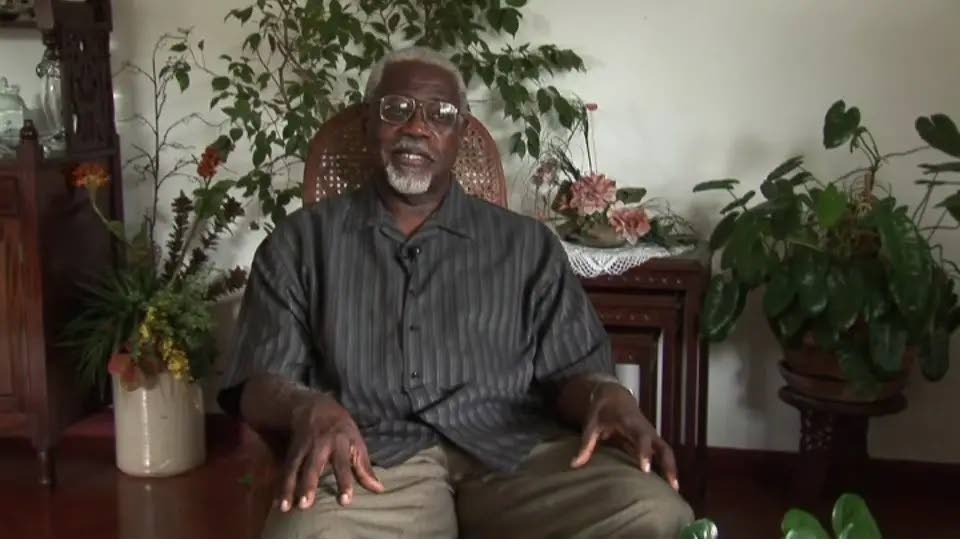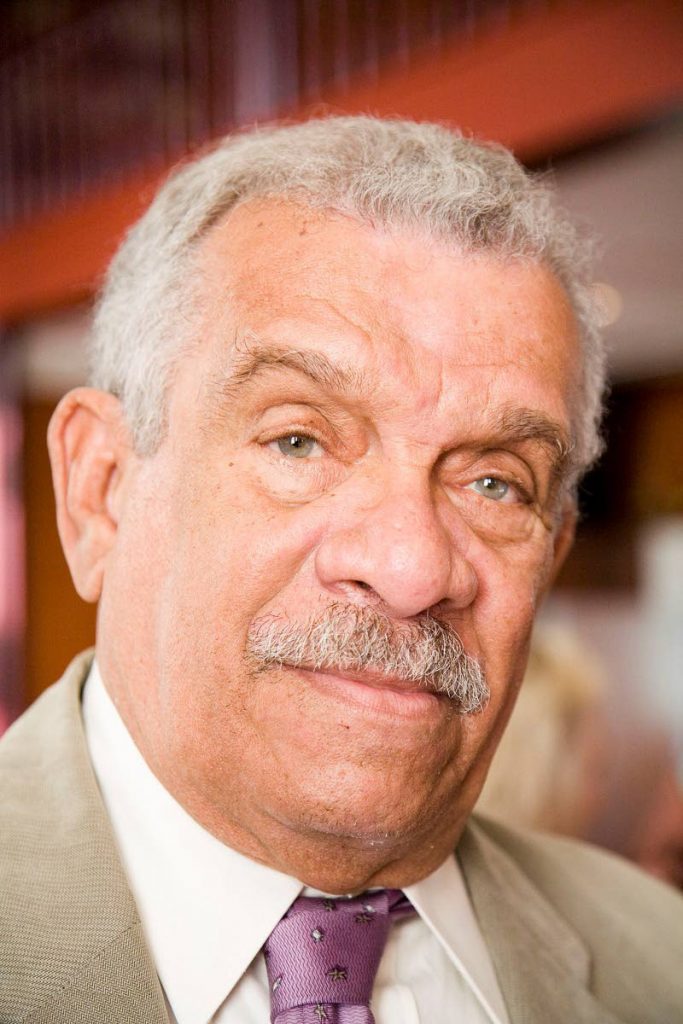Rohlehr's Bookman runs deep

IN his illustrious career at the University of the West Indies (UWI), St Augustine, Dr Gordon Rohlehr, now emeritus professor, brought a whole new meaning to the understanding of Caribbean literature. His compilations of essays on literature and culture and his books about how calypso reflects TT society created a better understanding of this country and elevated the calypso to a new level.
Just before he was honoured at this year’s NGC Bocas Lit Fest for his body of work, Rohlehr spoke about his collection of essays on calypso, education and community, Perfected Fables Now: A Bookman Signs Off on Seven Decades, published by Peepal Tree Press, which includes essays on subject matter from the 1940s to 2011.
“For some time – maybe since the late 1990s-2000s – I have been noting that a cycle of time has been closing,” said Rohlehr. “Cycles of time are always closing, and new ones are always beginning, but I’m talking about my own time – the writers, friends and calypsonians of my time.

“You recognise this is quite natural, and you begin to assess yourself and your work, because you are a part of that generation. You want to know what this work meant – if anything. It was a generation constantly talking about change, political and social change, and you want to know if any of that work facilitated any change. Are we better or worse, and how more or less to deal with that?”
Most interesting is the perspective Rohlehr adopts in Perfected Fables Now. In a brief preface, he assumes the identity of the Carnival Bookman, who traditionally writes everyone’s deeds in a book. For Rohlehr, the Bookman becomes the silent narrator recording history and providing a forum for readers to question the purpose of life.
“The concept of the Bookman keeps emerging in the culture and he gradually emerged in my work since I have been looking at Carnival.

“I remember the two bookmen at the end of Peter Minshall’s Golden Calabash mas. In Derek Walcott’s (poem The Spoiler’s Return) Spoiler, who died close to TT’s Independence, tries to figure out if this is the same place he knew when he was singing calypso. In Jamaica, (the dub poet) Mutabaruka has a Bookman-like figure in his work.
“I think I am a bit of a Bookman too. I am involved in the society, and at the same time strangely detached.”
The first essay – 75 pages long – deals with the late prime minister Eric Williams’s detailed vision for education, which included changing the view of the prestige schools and including vocational training in education. Williams envisioned the post-revolution, Mexican model of education where education was relevant and rooted in the community. Peasants were educated to become better farmers – not to leave agriculture to take up jobs in the cities.
“Williams’ ideas of education met opposition from both the religious denominations that controlled the prestige schools and the population that felt Williams, who had benefited from a prestige education at Queen’s Royal College (QRC), was offering something inferior to the masses,” Rohlehr explained.
Williams viewed education as a tool to combat colonialism. “He had a sense of the urgency of moving the society from a colonial backwardness towards a modern state where people were aware of the need to locate themselves in the wider world.”
Rohlehr finds there are a number of educational opportunities for today’s youths – “…if they are willing to accept the opportunities provided. I don’t know that the education system is flawed.”
But he says formal education receives stiff competition from “the curriculum of the street. It is almost a separate culture of itself.”
Rohlehr addresses the “culture of violence,” which he says began with the stickfights, then gangs, and ultimately supplied “the battalions of soldiers that have been building over the last 50 years.”
He believes problems come from stereotyping areas. “We talk about hotspots, and we are very comfortable with invading those areas, isolating them and targeting them, but when you confront certain areas, you get more violence.
The policemen come from the lower class black and Indian culture, so it’s more black-on-black violence. Calypsonians have understood this.”
There are essays about Walcott and his notion of the Caribbean being a new Mediterranean, and Earl Lovelace, with his concept of forming a new world.

“Lovelace asks who benefited from the Cedula of Population and Emancipation? Who got land, who didn’t? How do you create a new world in such a society? He tackles hard questions in his novels. You may not agree with him, but he tackles them.”
Rohlehr’s essay on Naipaul dissects the Trinidadian Nobel laureate’s view of ancestral lands.
“Naipaul asks the question: could any of us live in our ancestral lands? At the same time, can we live in the New World? And the other question is, where am I now? What has the exile produced, an alienated, displaced person?”
Brief essays on Lloyd Best, Pat Bishop and others, Rohlehr says, deals with his own personal sense of loss of a generation of people he knew very well. Ever present is that silent Bookman, gracing the cover with his bigger-than-life presence.
“My Bookman is an isolated character, but very conscious of the society, very hopeful that we can amend some of these problems, but not too sure we can.
My Bookman is just an archivist. I present what I see for whoever cares to read it and judge.” In the end, there is much to see and judge.


Comments
"Rohlehr’s Bookman runs deep"